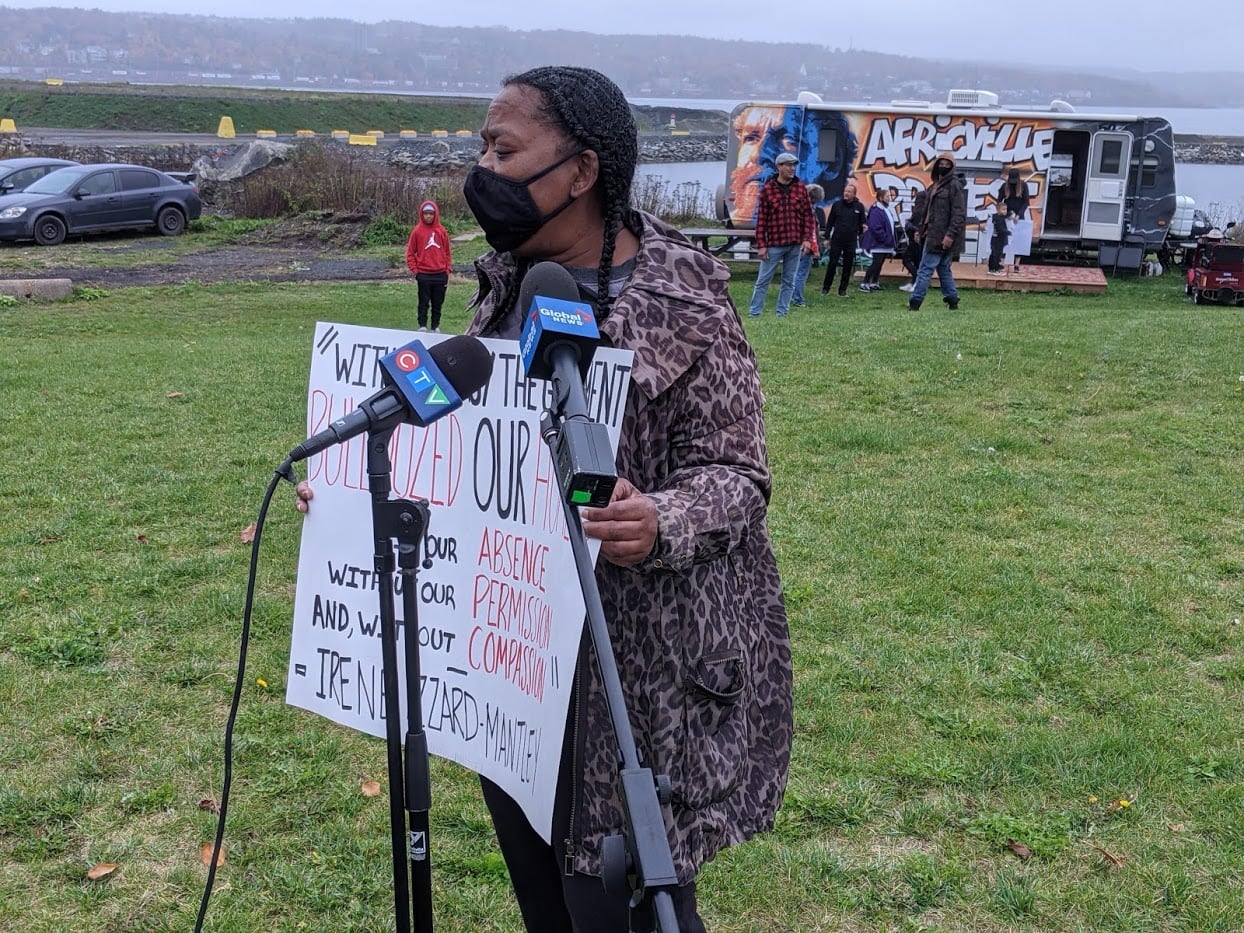
KJIPUKTUK (Halifax) – A little over a week ago several hundred people gathered at Africville Park on the shores of the Bedford Basin in Halifax to demand reparations for the loss of their community and the racism and neglect its residents were exposed to both before and after the demolition.
Several former Africville residents and their descendants are still trying to right that wrong. In their minds the apology and the measly 3 million it cost to rebuild the community’s church do not even come close to repairing the damage that was done to them in the early sixties.
The group argues that rules relating to an expropriation by the city were not followed at the time, and in 2016 initiated a class action lawsuit. Unfortunately, without consultation with its taxpayers the city has chosen to fight the group in court, rather than talk and come to a solution. That litigation is still ongoing.
Denise Allen is a former Africvile resident who helped organize last week’s rally and is involved in the court case as well. She is unhappy that her group has to fight the city this way.
Chinese Canadians didn’t have to fight in court for restitution for the head tax, she says, and neither did the Japanese Canadians who were interned during World War II. So why do we, she asks.
Allen is right.
In 2006 then Prime Minister Stephen Harper formally apologized to Chinese Canadians in the House of Commons and offered the symbolic payment of $20,000 to roughly 400 survivors or their widows. In 1988 Prime MInister Brian Mulroney issued a similar apology to Japanese Canadians, an apology that came with a $300 million compensation package. Closer to home, Pictou Landing First Nation received $35 million as compensation to the band and its members due to the adverse effects of the Boat Harbour Effluent Treatment System.
Having to fight the city when so many Halifax residents support the demand for reparations doesn’t seem right, Allen says.
“When the convoy of cars and marchers wound its way through the North End along the periphery of the old community, people were very supportive, Allen tells the Nova Scotia Advocate.
“It appears to me that the average citizen wants to see the issue of Africville resolved in favor of the residents. It meant a lot to hear people honking their horns, just regular people on the sidewalks waving us on, giving us the thumbs up. They were encouraging us to keep up the fight,” Allen says.
“I don’t know who our political representatives represent when they fight against justice for Africville. They’re certainly not representing their constituents. What they’re looking out for is the bottom line, they just don’t want to pay.”
See also: City of Halifax should not be fighting former Africville residents in court
“Africville is a symbol for what happened to Black people anywhere in Canada, and the demolition of Africville is just the tip of the iceberg,” says Allen. “For instance, the Halifax Explosion blew Halifax off the map, but somehow Africville residents were denied any help. These forms of discrimination and broken promises happened again and again and again.
“Those attitudes that caused the destruction of Africville are embedded in the political scheme of things. And it just continued straight through history, all the way from one end of Canada to the other end,” Allen says, pointing to the 2017 United Nations Report on its mission to Canada, a report that is highly critical of the racist and discriminatory practices it encountered in Nova Scotia.
See also: African Nova Scotian coalition doesn’t want UN report collecting dust on a shelf
Allen is not just looking at the city, but also at the provincial and federal governments.
“The container piers occupying part of Africville, the Rockhead prison nearby, the train tracks, the Infectious Disease hospital, those are institutions owned by various levels of government, and they all permitted them to come into the community, despite the cost to our health and safety. And then they had the audacity to turn things around and say that they have to get rid of Africville because our wells are contaminated.”
“It used to be that you couldn’t pick more blueberries than the land would produce. The women from Africville used the blueberries to make pies that they would sell to supplement the family income. You could pick blueberries from dusk to dawn every day, all day, make pies and all sorts of tasty foods out of it. And there would still be blueberries left over.”
“All of that rich, beautiful land, this is what they did with it. It makes no sense.”
Take Action to support the residents and the descendants of Africville who had their houses, church and community demolished by the City of Halifax in 1960s. Call on the municipal, provincial and federal governments to begin a reparations process that ensures prosperity and quality of life of Africvillians.
See also: City of Halifax should not be fighting former Africville residents in court
With a special thanks to our generous donors who make publication of the Nova Scotia Advocate possible.
Subscribe to the Nova Scotia Advocate weekly digest and never miss an article again. It’s free!




So many things happened in that community that the city reused to do anything about it. Fires without firefighters until it was to late to do anything ,no indoor plumbing I could go on and on. U just don’t treat people that way.